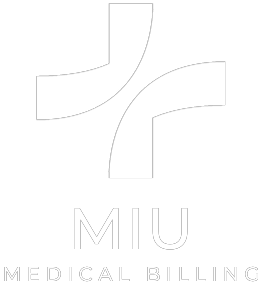Introduction
In the ever-evolving healthcare landscape, accurate and efficient medical coding is paramount for healthcare organizations to maintain a healthy revenue cycle and ensure compliance with complex regulations. However, inpatient medical coding can be daunting, requiring specialized knowledge, meticulous attention to detail, and a deep understanding of coding guidelines and best practices. This is where inpatient medical coding services come into play, offering a comprehensive solution to streamline the coding process and maximize reimbursements.
Inpatient Medical Coding Significance

Inpatient medical coding translates medical diagnoses, procedures, and services rendered during a patient’s hospital stay into standardized codes for billing and reimbursement purposes. Accurate coding is critical for several reasons:
- Revenue Optimization: Incorrect coding can lead to denied claims, underpayments, or delayed reimbursements, directly impacting the healthcare organization’s financial well-being.
- Regulatory Compliance: Following coding guidelines and regulations is crucial to avoid costly penalties and legal issues.
- Data Integrity: Accurate coding ensures the integrity of patient medical records and facilitates practical data analysis for quality improvement initiatives.
The Benefits of Outsourcing Inpatient Medical Coding Services
While healthcare organizations can handle inpatient medical coding in-house, outsourcing to specialized inpatient medical coding services offers numerous advantages:
- Expertise and Experience: Medical coding services employ teams of highly skilled and certified coders with extensive experience in navigating the complexities of inpatient coding. These professionals possess in-depth knowledge of the latest coding guidelines, ensuring accurate and compliant coding practices.
- Scalability and Flexibility: Inpatient medical coding services can accommodate fluctuating workloads and adapt to the changing needs of healthcare organizations, whether it’s handling surges in patient volumes or addressing staffing shortages.
- Cost Savings: It can be a cost-effective solution, eliminating the need to maintain an in-house coding team and the associated overhead costs, such as training, software, and equipment expenses.
- Quality Assurance: Reputable medical coding services have robust quality assurance protocols, including double coding, regular audits, and ongoing coder training. These protocols ensure the highest level of accuracy and minimize the risk of coding errors.
- Timely Turnaround: It leverages advanced technology and streamlined processes to optimize the coding workflow, ensuring prompt turnaround times and minimizing revenue cycle delays.
- Compliance and Risk Mitigation: By partnering with inpatient medical coding services, healthcare organizations can mitigate the risks of non-compliance and minimize the likelihood of costly penalties, reimbursement denials, and legal issues.
The Inpatient Medical Coding Process

When partnering with inpatient medical coding services, healthcare organizations can expect a well-defined and streamlined coding process:
- Initial Consultation: The coding service provider will conduct an in-depth consultation to understand the organization’s unique needs, workflows, and coding requirements.
- Customized Coding Plan: Based on the consultation, a tailored coding plan is developed, considering the organization’s specialties, coding guidelines, and specific coding challenges.
- Secure Data Transfer: Healthcare organizations can securely transfer patient medical records and documentation to the coding service provider, protecting sensitive information and maintaining compliance with data privacy regulations.
- Coding and Review: The skilled medical coders meticulously analyze the medical records, applying the appropriate coding guidelines and conventions. Each coded claim undergoes a rigorous review process to ensure accuracy and completeness.
- Quality Assurance: The coding service provider’s quality assurance team conducts thorough audits and double-checks every coded claim, ensuring compliance and minimizing the risk of errors or denials.
- Seamless Integration: The coded claims are seamlessly integrated into the healthcare organization’s billing and revenue cycle management systems, ensuring a smooth and efficient workflow.
- Ongoing Support and Optimization: Inpatient medical coding services provide ongoing support, regular coding audits, and continuous process optimization to ensure the healthcare organization stays ahead of industry changes and maximizes reimbursements.
Choosing the Right Inpatient Medical Coding Service Provider
When selecting an inpatient medical coding service provider, it’s crucial to consider the following factors:
- Reputation and Experience: Research the provider’s track record, read client testimonials, and seek recommendations from industry peers or professional associations. A reputable service provider with extensive experience in medical coding can instill confidence in their abilities.
- Certification and Credentialing: Ensure the coding service provider employs certified and credentialed medical coders up-to-date with the latest coding guidelines and industry standards.
- Compliance and Data Security: Evaluate the provider’s compliance protocols, data security measures, and adherence to privacy regulations, such as HIPAA, to safeguard sensitive patient information.
- Customization and Flexibility: Assess the provider’s ability to offer customized solutions tailored to your organization’s needs and adapt to changing requirements or evolving coding guidelines.
- Times and Communication: Inquire about the provider’s turnaround times and communication channels to ensure prompt coding services and effective coordination throughout the coding process.
- Cost-Effectiveness: While quality should be the primary consideration, evaluate the provider’s pricing structure and ensure that their services offer your organization a favorable return on investment.
Conclusion
In the complex world of healthcare, accurate and efficient inpatient medical coding is essential for maintaining a healthy revenue cycle, ensuring compliance, and supporting data-driven decision-making. Its services offer a valuable solution for healthcare organizations seeking to streamline their coding processes, maximize reimbursements, and mitigate coding errors or non-compliance risks. By partnering with reputable inpatient medical coding service providers, healthcare organizations can leverage the expertise of skilled medical coders, benefit from advanced technology and streamlined processes, and enjoy the peace of mind that comes with knowing their coding needs are in capable hands. As the healthcare landscape evolves, its services will remain a strategic asset, helping organizations navigate the intricacies of coding, optimize revenue, and ultimately focus on delivering high-quality patient care.




